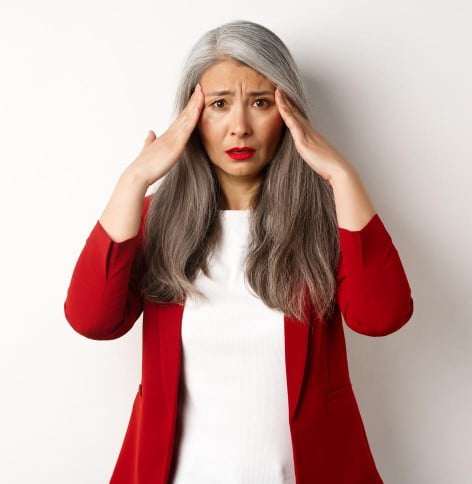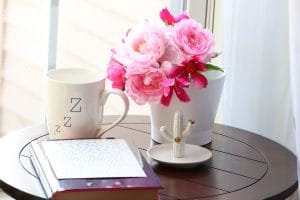June is Brain Injury Awareness Month. The primary goal is to raise awareness about the frequency and impact of brain injuries, both traumatic and non-traumatic. Every year, thousands of Canadians are affected by strokes and brain injuries that can happen in an instant but have lasting impacts.
The month encourages compassion and understanding for those living with the long-term effects of brain injuries, whether you’re a survivor, caregiver, healthcare worker, or advocate.
Did you know that:
- There are more Canadians living with an acquired brain injury (ABI) than those living with multiple sclerosis, HIV/AIDS, spinal cord injuries and breast cancer combined
- 452 Canadians suffer a serious brain injury every day (1 person every 3 minutes!). This figure does not include mild brain injury statistics
- There are two types of ABIs: non-traumatic and traumatic
- Every person will respond differently to an ABI, but common impacts include physical, cognitive, emotional and behavioural changes
(Source: Brain Injury Association of Canada)
Traumatic Brain Injury
Traumatic brain injury (TBI) is a leading cause of disability globally. With over 20,000 Canadians being hospitalized each year with traumatic brain injury, there is a huge need for education around the prevention and impact of traumatic brain injuries.
Brain injury happens in an instant. It does not discriminate, nor does it only impact one person. Brain injury changes the lives of people of all ages, genders, and ethnicities, leaving little time to adapt. This disability lasts a lifetime and often leaves many with feelings of grief, loneliness, anxiety, depression, and an inability to cope.
Most TBIs are caused by falls, and falling poses an especially serious risk for older adults. When a person over 65 years old sustains a serious TBI in a fall, it may result in long-term cognitive changes, reduced ability to function and changes in emotional health. Certain types of TBI may increase the risk of developing Alzheimer’s or another type of dementia years after the injury takes place.
Ways to reduce the risk of falls include:
- Using a walker or other assistive device to compensate for mobility problems, muscle weakness or poor balance.
- Having your vision checked regularly and using glasses or contact lenses that correct for changes.
- Working with your doctor to watch for medication side effects or interactions among drugs you’re taking.
- Avoiding household hazards, such as clutter, loose rugs or bad lighting.

Non-Traumatic Brain Injury
Mild Traumatic Brain Injury does not always cause loss of consciousness or cause unconsciousness for 30 minutes or less. There are many different ways to sustain a non-traumatic brain injury often referred to as a concussion.
A stroke occurs when clots, plaque, or other particles block the blood supply to part of the brain, or when a blood vessel in the brain bursts. Parts of the brain become damaged or die. A stroke can cause lasting brain damage, long-term disability, or even death.
Lack of oxygen to the brain can cause a non-traumatic brain injury. Near-drowning, overdoses, and carbon monoxide poisoning are just a few examples of how this can happen. When the brain is cut off from oxygen, it will result in a hypoxic or anoxic brain injury. This type of brain injury has its own set of symptoms and effects.
Certain diseases like meningitis can attack the brain and cause health complications, including acquired brain injury.
Although most TBIs are classified as mild because they’re not life-threatening, a mild TBI can have serious and long-lasting effects; the extent of these effects is not fully understood and requires more research.

Living with Brain Injury
A brain injury is a difficult life event that will alter your life. You will have to learn how to live with the challenges and changes it presents. This includes changes to independence, abilities, work, personality, and relationships with family, friends, and caregivers. The individual with the brain injury may depend on you for more things and in some cases require full-time, hands-on care that changes your daily routines and your relationships as well. This can cause a lot of emotions including stress, anger, depression, and even grief for both of you.
As you all go through the stages of acute care, rehabilitation, and learning to manage and live with a brain injury, you’re going to have a lot of questions about brain injury, how it impacts your loved one, and how it will impact you. This is where it’s helpful to have support and services available.
With the help of others in healthcare, your community, your family, and your local brain injury association, you can begin to understand brain injury, the effects it can have, and how to manage changes.
Local Resources
The Ontario Brain Injury Association is committed to serving all Ontarians, driving change, and increasing accessibility by reducing barriers for vulnerable and marginalized people across the province.
The Brain Injury Association of Waterloo-Wellington (BIAWW) is a charitable organization devoted to providing advocacy, education, connections, and empowerment for individuals with acquired brain injury and their families in the Waterloo-Wellington region.
A Better Life Together
The Promyse Home Care team of experienced nurses & caregivers offers a wide range of home and health care services to those looking for the highest quality of professional & caring support. Whether it is giving care to seniors, disabled, chronically or terminally ill people, we have the knowledge, understanding & compassion to help you through.



